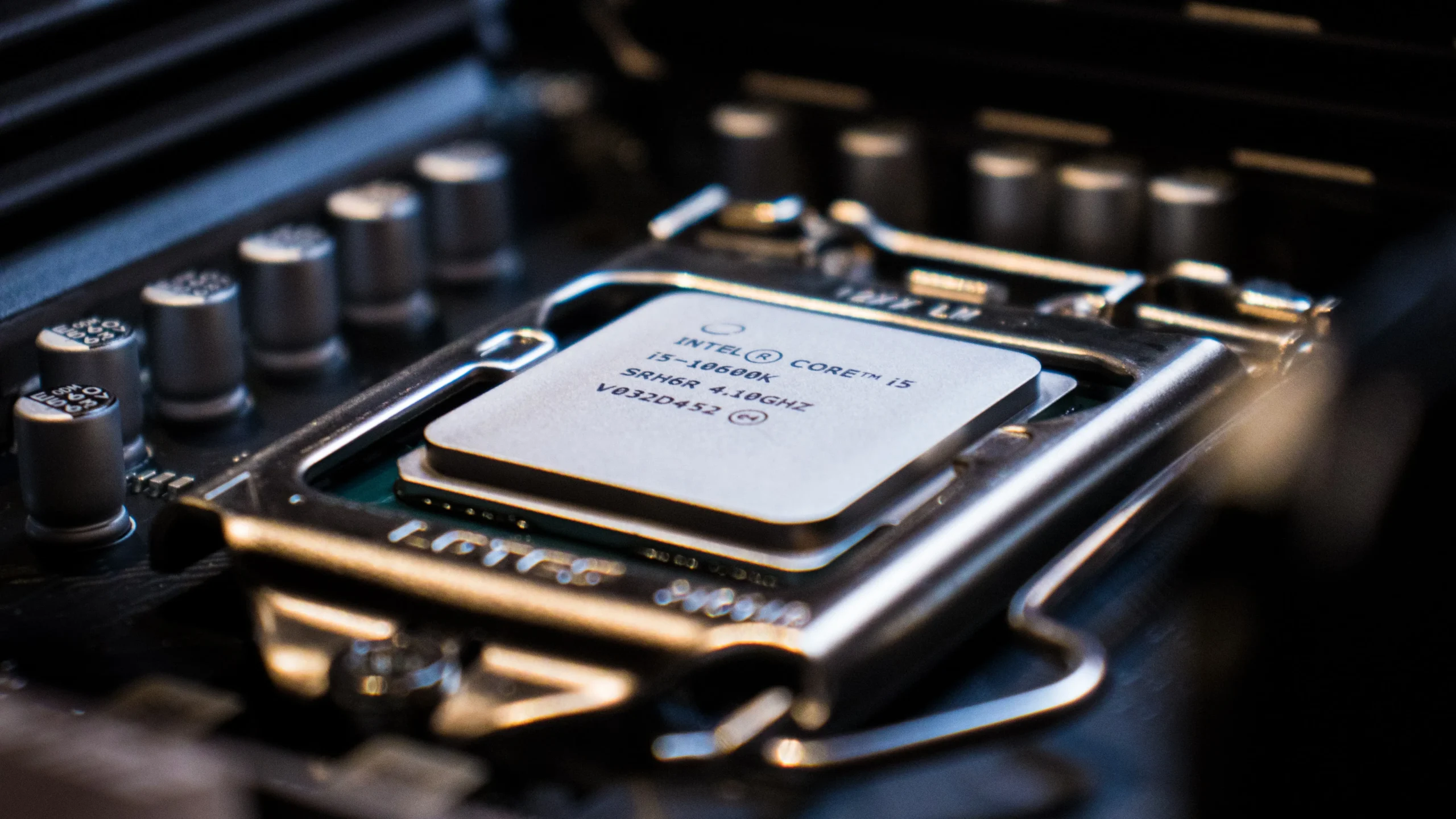When it comes to building a gaming PC, choosing the right components is essential. While every component plays a role in the performance of your PC, the processor is arguably the most important. It’s the engine that drives your computer, and it can make a significant difference in your gaming experience.
In the market today, two of the most popular choices for processors are Intel and AMD. Both brands offer a range of processors that are specifically designed for gaming, and both have their own unique strengths and weaknesses. In this blog post, we’ll take a closer look at Intel vs AMD for gaming and help you decide which one is the better choice for your needs.
First, we’ll compare the performance of Intel and AMD processors. We’ll look at the differences in single-core vs multi-core performance and how each brand excels in certain areas. Then, we’ll take a look at price and value for money, as well as the implications of overclocking on each brand. Finally, we’ll discuss upgradability and how it affects the long-term value of your processor.
By the end of this post, you should have a better understanding of the differences between Intel and AMD for gaming, and be able to make an informed decision when choosing a processor for your gaming PC.
Performance

When it comes to gaming performance, both Intel and AMD offer high-end processors that can handle even the most demanding games. However, the two brands have their own unique strengths when it comes to processing power.
Intel’s processors are known for their single-core performance. This means that they excel at tasks that rely on a single thread, such as gaming. Single-core performance is important in gaming because most games are optimized for single-threaded performance, which means that a processor with a high single-core performance will generally provide better gaming performance.
On the other hand, AMD’s processors tend to have more cores and threads, which make them better suited for multitasking and productivity applications. This means that if you plan to use your computer for other tasks, such as video editing or streaming, an AMD processor may be the better choice.
It’s also important to note that both brands are highly competitive when it comes to gaming performance, and the differences between them are often negligible. Ultimately, the choice between Intel and AMD for gaming performance comes down to your specific needs and budget. If you’re looking for raw single-core performance and have the budget to spare, an Intel processor may be the better choice. However, if you’re looking for a more versatile processor that can handle both gaming and productivity tasks, an AMD processor may be the way to go.
Intel vs AMD for Gaming Price Comparison
Price is an important consideration when it comes to choosing a processor for your gaming PC. Both Intel and AMD offer a range of processors at different price points, and it’s important to find the right balance between performance and budget.
Generally speaking, Intel processors tend to be more expensive than AMD processors. This is partly due to Intel’s reputation for high-end single-core performance, which often comes with a higher price tag. However, the price difference between Intel and AMD processors can vary depending on the specific models and configurations you’re looking at.
When it comes to value for money, AMD processors tend to offer more bang for your buck. This is because AMD processors often have more cores and threads than their Intel counterparts, which makes them better suited for multitasking and productivity tasks. If you’re looking to build a PC that can handle both gaming and productivity tasks, an AMD processor may be the better choice for your budget.
It’s also worth noting that both Intel and AMD release new processors on a regular basis, which can affect the price and value for money of their existing processors. If you’re on a tight budget, it may be worth waiting for a new release from either brand, as it may bring down the price of existing processors.
Ultimately, the choice between Intel and AMD for price and value for money comes down to your specific needs and budget. If you’re looking for a high-end processor and have the budget to spare, Intel may be the better choice. However, if you’re looking for a processor that can handle both gaming and productivity tasks without breaking the bank, AMD may be the way to go.
Overclocking
Overclocking is the process of increasing a processor’s clock speed to achieve better performance. Both Intel and AMD processors can be overclocked, but the extent to which they can be overclocked depends on the specific model and configuration.
In general, Intel processors tend to be easier to overclock than AMD processors. This is because Intel’s processors have a higher base clock speed, which gives them more headroom for overclocking. Additionally, Intel processors have a reputation for being more stable when overclocked, which makes them a popular choice for overclockers.
However, this doesn’t mean that AMD processors can’t be overclocked. In fact, many AMD processors are designed to be overclocked, and some models even come with unlocked multipliers that make overclocking easier. The key difference is that AMD processors may require more fine-tuning and tweaking to achieve stable overclocks, which can be time-consuming and require a bit of technical know-how.
When it comes to overclocking, it’s important to keep in mind that it can have implications for the long-term health of your processor. Overclocking can cause your processor to run hotter, which can lead to decreased lifespan and stability. Additionally, overclocking can void your warranty, so it’s important to proceed with caution and only overclock if you’re comfortable with the risks.
Ultimately, the choice between Intel and AMD for overclocking comes down to your specific needs and preferences. If you’re an experienced overclocker or looking for a processor that’s easier to overclock, Intel may be the better choice. However, if you’re willing to put in the time and effort to fine-tune your overclock, an AMD processor can offer excellent overclocking potential.
Power Consumption
Power consumption is an important consideration when choosing a processor, especially if you’re building a gaming PC that will be running for long periods of time. Both Intel and AMD offer processors with varying power consumption levels, and it’s important to find a balance between performance and energy efficiency.
In general, AMD processors tend to be more power-efficient than Intel processors. This is partly due to the fact that AMD processors have more cores and threads, which allows them to distribute workloads more efficiently and use less power overall. Additionally, many of AMD’s processors are built using a more power-efficient manufacturing process, which further reduces their energy consumption.
However, it’s worth noting that this doesn’t necessarily mean that Intel processors are power-hungry. In fact, Intel has made significant strides in recent years to improve the energy efficiency of its processors. Additionally, the power consumption of a processor can vary depending on the specific model and configuration, so it’s important to look at the specifications for each processor you’re considering.
When it comes to power consumption, it’s important to keep in mind that a more power-efficient processor may come at the cost of performance. This means that if you’re looking for a high-end gaming PC that can handle demanding games at high settings, you may need to sacrifice some energy efficiency. However, if you’re willing to compromise on performance in exchange for energy efficiency, an AMD processor may be the better choice.
Ultimately, the choice between Intel and AMD for power consumption comes down to your specific needs and priorities. If you’re looking for a processor that’s more power-efficient and environmentally friendly, AMD may be the better choice. However, if you’re looking for raw performance and are willing to sacrifice some energy efficiency, Intel may be the way to go.
Upgradability
When choosing a processor for gaming, it’s important to consider upgradability. Upgradability refers to the ability to upgrade your processor to a newer or more powerful model in the future. Both Intel and AMD offer processors with varying levels of upgradability, and it’s important to choose a processor that will allow you to keep up with the latest gaming trends and technologies.
In general, both Intel and AMD offer processors that are relatively easy to upgrade. However, there are some key differences between the two when it comes to upgradability. Intel processors tend to have a shorter lifespan than AMD processors, meaning that they may become obsolete more quickly. This can make it more difficult to upgrade to newer models in the future.
On the other hand, AMD processors tend to have a longer lifespan and are more likely to be compatible with newer motherboards and chipsets. This means that upgrading to a newer AMD processor is often easier and more cost-effective than upgrading to a newer Intel processor.
When it comes to upgradability, it’s also important to consider compatibility with other components in your gaming PC, such as your motherboard, memory, and graphics card. Some processors may require specific motherboard chipsets or memory configurations in order to function properly, so it’s important to do your research and choose a processor that is compatible with your existing hardware.
Ultimately, the choice between Intel and AMD for upgradability comes down to your specific needs and preferences. If you’re looking for a processor that will be easy to upgrade in the future, an AMD processor may be the better choice. However, if you prioritize performance over upgradability, or if you plan to upgrade your entire system in the near future, an Intel processor may be the way to go.
Conclusion
When it comes to choosing a processor for gaming, there is no one-size-fits-all solution. Both Intel and AMD offer processors with varying levels of performance, price, power consumption, overclocking potential, and upgradability, and the choice ultimately comes down to your specific needs and priorities.
If you prioritize raw performance and are willing to pay a premium, Intel processors may be the better choice. Intel processors tend to offer better single-threaded performance, which can be particularly important for gaming. Additionally, Intel processors are often the go-to choice for high-end gaming PCs and professional workstations.
On the other hand, if you’re looking for a more affordable processor that offers good performance and power efficiency, AMD processors may be the way to go. AMD processors tend to offer better multi-threaded performance, which can be particularly beneficial for running multiple applications or tasks simultaneously. Additionally, AMD processors often come with more cores and threads, which can improve performance in demanding applications and workloads.
Ultimately, the choice between Intel and AMD for gaming comes down to your specific needs and priorities. It’s important to consider factors such as performance, price, power consumption, overclocking potential, and upgradability when making your decision. By doing your research and carefully considering your options, you can choose a processor that will provide you with the best possible gaming experience for years to come.
